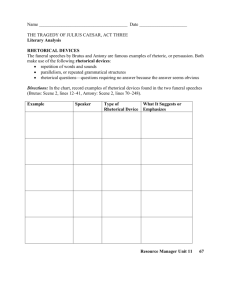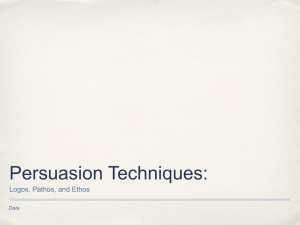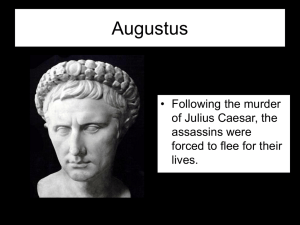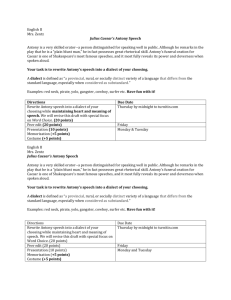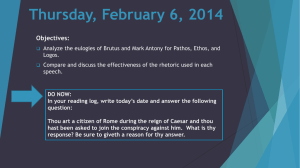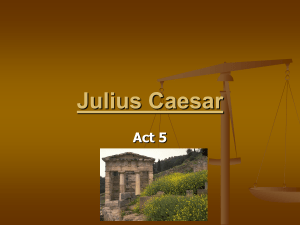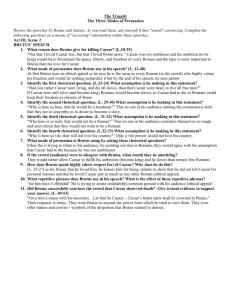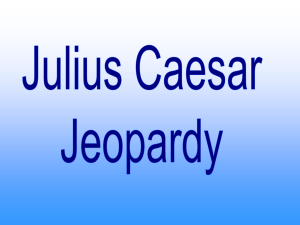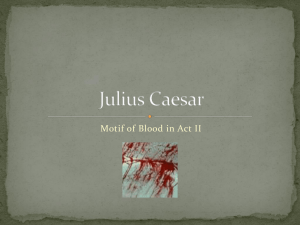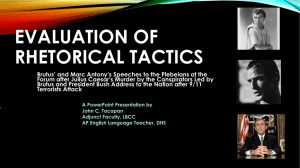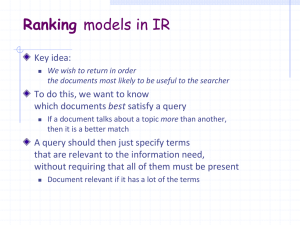File
advertisement
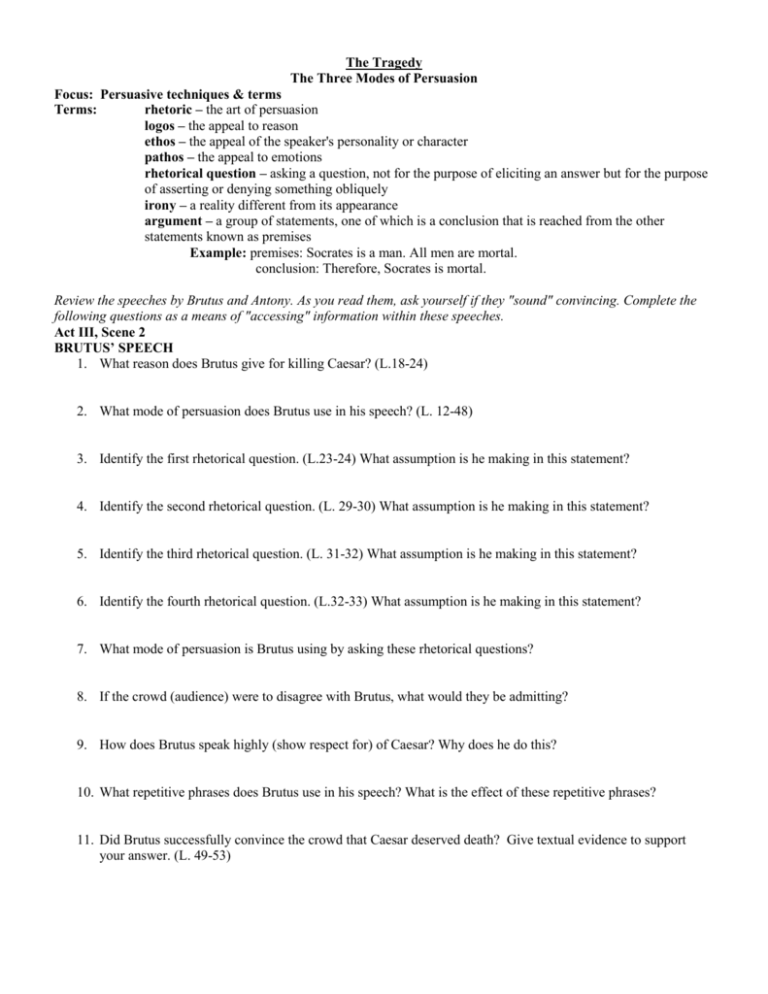
The Tragedy The Three Modes of Persuasion Focus: Persuasive techniques & terms Terms: rhetoric – the art of persuasion logos – the appeal to reason ethos – the appeal of the speaker's personality or character pathos – the appeal to emotions rhetorical question – asking a question, not for the purpose of eliciting an answer but for the purpose of asserting or denying something obliquely irony – a reality different from its appearance argument – a group of statements, one of which is a conclusion that is reached from the other statements known as premises Example: premises: Socrates is a man. All men are mortal. conclusion: Therefore, Socrates is mortal. Review the speeches by Brutus and Antony. As you read them, ask yourself if they "sound" convincing. Complete the following questions as a means of "accessing" information within these speeches. Act III, Scene 2 BRUTUS’ SPEECH 1. What reason does Brutus give for killing Caesar? (L.18-24) 2. What mode of persuasion does Brutus use in his speech? (L. 12-48) 3. Identify the first rhetorical question. (L.23-24) What assumption is he making in this statement? 4. Identify the second rhetorical question. (L. 29-30) What assumption is he making in this statement? 5. Identify the third rhetorical question. (L. 31-32) What assumption is he making in this statement? 6. Identify the fourth rhetorical question. (L.32-33) What assumption is he making in this statement? 7. What mode of persuasion is Brutus using by asking these rhetorical questions? 8. If the crowd (audience) were to disagree with Brutus, what would they be admitting? 9. How does Brutus speak highly (show respect for) of Caesar? Why does he do this? 10. What repetitive phrases does Brutus use in his speech? What is the effect of these repetitive phrases? 11. Did Brutus successfully convince the crowd that Caesar deserved death? Give textual evidence to support your answer. (L. 49-53) ANTONY'S SPEECH 1. Antony says, "I come to bury Caesar, not to praise him." Antony places Caesar’s body infront of the pulpit from which he is making his speech; what effect might this have on his audience? What type of appeal is this? (L.75-76) 2. Throughout his speech how does Antony refer to Brutus and the other conspirators? (L.84-85) 3. In Scene 1, Antony promised the conspirators that he would not speak ill of them before the crowd. Does Antony keep his promise? 4. What evidence/reasons does Antony provide to disprove Brutus’ assumption that Caesar was too ambitious and therefore deserved to die? (L.85-105) 5. In L. 107-09, Why does Antony say that he must pause? Is this effective? What is the mode of persuasion used? 6. Why L. 120-27, "But yesterday the word of Caesar might . . . Than I will wrong such honorable men" ironic? 7. What reasons does Antony give for not reading Caesar’s will? How does the crowd react? (L.142-148) 8. Why does Antony refer to Caesar’s mantle? What type of appeal is this? (L.171-190) 9. By pointing out all of the stab wounds, Antony continues to build the image of Caesar as a ___________. (L.171-190) 10. What does Antony say "burst [Caesar's] mighty heart?" What type of emotions does this elicit from the crowd? (L.183-88) 11. On L. 212, Why does Antony refer to the crowd as, “Good friends, sweet friends. . .?” 12. What does Antony suggest would occur if he had the speaking abilities of Brutus? How does the crowd react? (L.218-234) 13. As the crowd disperses, Antony says: "Now let it work: Mischief, thou art afoot,/Take thou what course thou wilt." What is Mark Antony saying here? What does the couplet reveal about Antony’s true motives? (L.26263)

